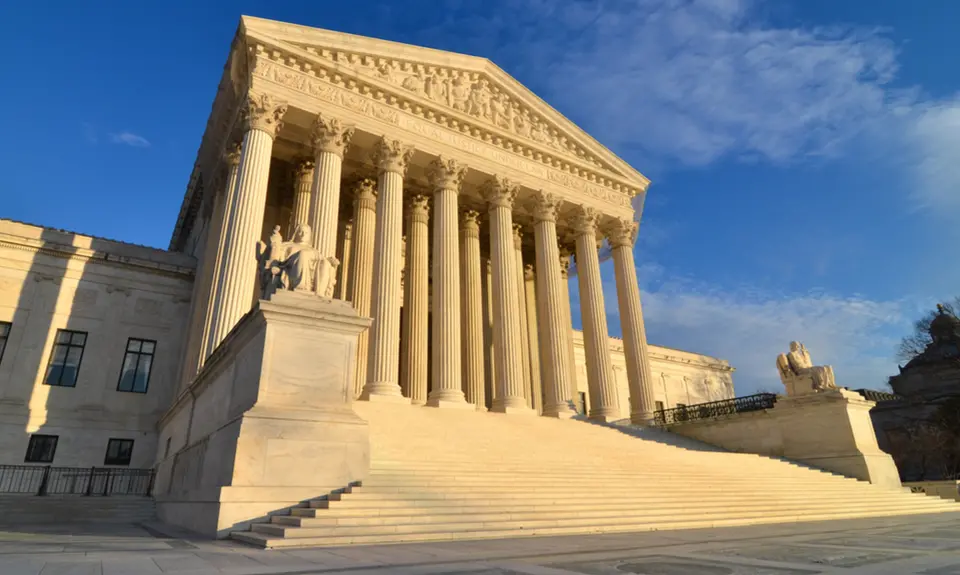“Confirmed Judges, Confirmed Fears” is a blog series documenting the harmful impact of President Trump’s judges on Americans’ rights and liberties.
Over the past several months, votes by President Trump’s two Supreme Court and four Fifth Circuit appointees were almost enough to allow a restrictive Louisiana anti-choice law to go into effect, even though it is virtually identical to a Texas provision struck down by the Supreme Court three years ago. The Trump judges included Justices Brett Kavanaugh and Neil Gorsuch plus Circuit Court Judges Don Willett, James Ho, Kurt Engelhardt, and Andrew Oldham. By a 5-4 vote with Justice Roberts joining the Court’s four moderates, however, the Court halted the state law pending a decision on a request that the Court review the case on the merits. As one commentator put it, if the Court had declined the stay, the net result would have made Roe v. Wade “all but dead.”
Originally enacted in 2014, Louisiana’s restrictive law would severely limit women’s reproductive choice by imposing the onerous and medically unjustified requirement that doctors performing abortions have nearby hospital admitting privileges. The requirement was almost identical to a similar mandate passed by Texas that was struck down in a 5-3 vote by the Supreme Court in 2016 in Whole Woman’s Health v. Hellerstadt. The Court had stayed enforcement of the Louisiana law in 2016 and directed the lower courts to reconsider the statute in light of the Texas decision.
The district court in Louisiana then held a six-day trial and issued a 116-page decision entering a permanent injunction against the law in June Medical Services v. Gee in April 2017. The court specifically found that as a result of the law, there would be only “one provider and one clinic” in the entire state that could perform abortions, as opposed to six doctors and five clinics before the law was passed. The court concluded that “a substantial number” of Louisiana women – 70 percent of those who choose to seek abortion – would be unable to obtain one in the state. The court also found that the hospital privileges requirement would produce “no medical benefit,” and would thus not further the state’s interest in women’ s health, but instead would increase delays and health risks to Louisiana women, as well as substantially burdening their right to reproductive choice.
In September 2018, a Fifth Circuit panel reversed the district court’s decision 2-1, finding that the law would not impose a “substantial burden” on access to abortion. Reagan appointee Patrick Higginbotham vigorously dissented. He explained that the majority “fails to give the appropriate deference” to the extensive factual findings of the district court, and instead was improperly and “essentially conducting a second trial” based on “the cold appellate record.” Based on the trial court record, Higginbotham explained, it was clear that the Louisiana law had both the purpose and effect of creating a “substantial burden” on women’s reproductive rights, as did the law in Texas.
The full Fifth Circuit decided not to reconsider the case in January 2019, and Trump appointees played a decisive role. Six judges, including Higginbotham and one other conservative Republican appointee, voted to rehear the case. But nine judges, including four Trump appointees, voted to deny rehearing. Four of the dissenting judges wrote that the panel decision was “in clear conflict” with the Supreme Court’s decision in the Texas case, and that the majority of the full Fifth Circuit was “apparently content to rely on strength in numbers rather than sound legal principles in order to reach their desired result.” (The fifth Trump appointee, Kyle Duncan, did not participate in the decision since he had helped the state defend the Louisiana law in court.)
June Medical Services sought an immediate stay of the decision from the Supreme Court so the ruling could be reviewed on the merits before the restrictive law took effect. On February 7, 2019, the Court decided 5-4 to stay the Fifth Circuit ruling and prevent the law from taking effect, pending a decision on a request that the Court review the case on the merits. Trump’s appointees both dissented, with Kavanaugh writing a separate dissent suggesting that the plaintiffs file another stay request later if needed, which has already been criticized.
The votes of the two Trump appointments could be critical when the Supreme Court considers the Louisiana law on the merits, which it is likely to do in 2019-20. Chief Justice Roberts was one of the three dissenters when the Court invalidated the Texas law in 2016. If he takes the same position when the Louisiana statute is reviewed on the merits, then the votes of Kavanaugh and Gorsuch could be decisive in effectively reversing the Texas decision and endangering Roe v. Wade.
